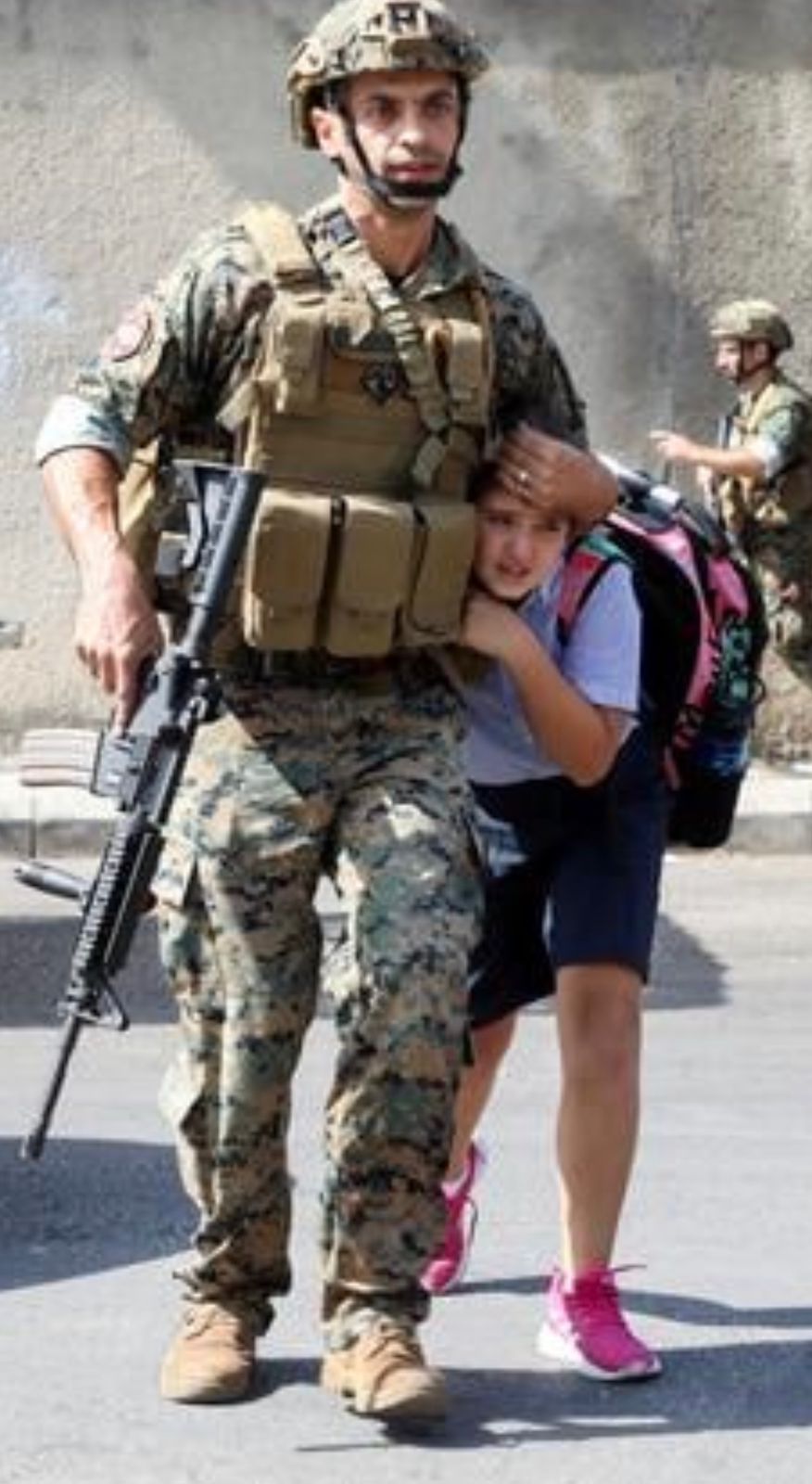
By NAJIA HOUSSARI — arabnews.com — BEIRUT: Rival drug-dealing families using machine guns and rocket-propelled grenades brought mayhem to the streets of a southern Beirut neighborhood during a series of violent clashes on Tuesday. Lebanese troops were forced to step in to end the fighting in an area adjoining the Burj Al-Barajneh camp for Palestinian refugees after members of the two families became embroiled in a dispute over drug trafficking. Clashes initially broke out late on Monday when Hassan Jaafar, an alleged Syrian drug dealer with a Lebanese mother, began arguing with members of a rival family living in the same area, known as the Baalbekien neighborhood. Samir Abu Afash, an official of the Palestine Liberation Organization and the Fatah movement in Beirut, told Arab News that Jaafar started “shooting randomly in the direction of the camp” due to a dispute with other gunmen. “We feared that something was planned against the camp,” he said.
Abu Afash said that the PLO has pledged not to interfere in Lebanese affairs, or involve refugee camps in any disputes between the Palestinians and the Lebanese. “So we contacted the Lebanese army and Hezbollah to stop the clashes. But the fights continued throughout the night and intermittently until the army intervened in the morning and entered the haven Jaafar had formed years ago for his gang and arrested two people. Jaafar remains at large.” He added: “Hezbollah and the Amal Movement have repeatedly stressed that they do not provide cover for Jaafar, and when they do intervene, he usually lays low for a while. Jaafar was able to make a name for himself in the area and managed to bring in prohibited materials into the camp, including building materials for example, along with drugs.” The army is believed to have seized stolen items, including motorcycles, during the raid. Burj Al-Barajneh camp is home to over 35,000 Palestinian refugees, as well as some Syrians and Palestinians who fled from Syria.
Lebanese security forces are combating drug dealers in neighborhoods adjacent to the camp. According to a security source, dealers and distributors encourage people from the site to sell their drugs. Havens for drug dealers and fugitives are common in various Lebanese regions, especially in Hezbollah areas in the southern suburbs of Beirut and in northern Bekaa, although the party claims to have nothing to do with them. The problem appears to have worsened in recent months, with drug dealers even threatening the security services. Lt. Col. Ibrahim Rashid, head of the regional anti-narcotics office in Tripoli, said that statistics showed an increase in the numbers of drug addicts and dealers since 2016. The problem is placing greater strain on Lebanon’s security and judicial systems, he said. “Drug users pose a threat to the lives of others, as well as to the security of society in their pursuit of theft, fraud, criminality and aggression,” he added.
Lebanon North investigative judge Samaranda Nassar told a recent seminar on Lebanon’s drug problem that rising rates of addiction are leading to an increase in thefts and murders around the country. “We are confronting new types of drugs intended for young ages and adolescents, as well as digital drugs that are no less dangerous than traditional drugs in their effect on confusing the human brain,” she said. “Stricter penalties need to be imposed on drug dealers. I am determined to take appropriate decisions and punish criminals.”



